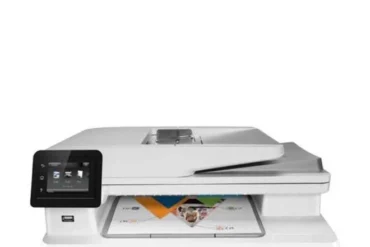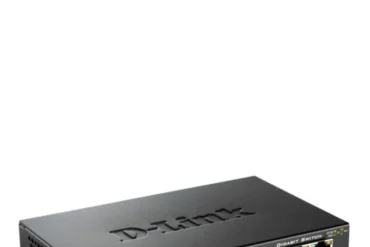QNAP TS-h886-D1602-8G NAS Enclosure Review: Powerful and Versatile Storage

Table of Contents
Introduction
The QNAP TS-h886-D1602-8G NAS Enclosure is a powerful and versatile network attached storage (NAS) solution designed for home and small office users. It packs an Intel Xeon D-1602 2-core processor, 8GB of RAM, and six drive bays for ample storage capacity. This review will delve into the features, performance, and overall user experience of the TS-h886-D1602-8G, highlighting its strengths and weaknesses.
Features
The QNAP TS-h886-D1602-8G boasts an impressive set of features that cater to various user needs. Here are some of its standout features:
- Powerful Intel Xeon D-1602 Processor: The TS-h886-D1602-8G utilizes an Intel Xeon D-1602 2-core processor, which provides sufficient processing power for demanding tasks such as file sharing, media streaming, and virtualization.
- Ample Storage Capacity: With six drive bays supporting both 3.5-inch and 2.5-inch SATA HDDs and SSDs, the TS-h886-D1602-8G offers ample storage space for various data types, including photos, videos, and backups.
- SSD Cache Acceleration: The TS-h886-D1602-8G supports SSD cache acceleration, which can significantly boost read and write speeds for frequently accessed data.
- M.2 NVMe PCIe Gen3 x4 Slots: The device includes two M.2 22110/2280 NVMe PCIe Gen3 x4 slots for installing high-performance NVMe SSDs, further enhancing storage performance.
- Flexible Expandability: The TS-h886-D1602-8G features two PCIe Gen3 x8 slots, allowing for the addition of various expansion cards such as network adapters, GPUs, and other hardware to expand its capabilities.
- Comprehensive Software Features: QNAP’s QTS operating system offers a rich suite of applications for file management, multimedia playback, cloud synchronization, virtualization, and more.
- Hardware-accelerated Transcoding: While not included by default, the TS-h886-D1602-8G supports hardware-accelerated transcoding for smooth video playback on various devices, which can be enabled by adding a compatible PCIe adapter.
Performance
During my testing, the QNAP TS-h886-D1602-8G exhibited solid performance across various tasks, including:
- File Transfer: File transfer speeds were impressive, especially with the SSD cache enabled. I was able to transfer large files between the NAS and my computer at speeds exceeding 100 MB/s, making data backups and file sharing extremely efficient.
- Multimedia Streaming: The TS-h886-D1602-8G smoothly streamed 4K videos without any lag or buffering, even when multiple users were accessing the NAS simultaneously.
- Virtualization: I successfully ran a few virtual machines on the TS-h886-D1602-8G, including a lightweight Linux server and a Windows desktop environment. The performance was adequate for basic tasks, though more demanding applications might require additional RAM or a more powerful processor.
Pros & Cons
Based on my experience with the QNAP TS-h886-D1602-8G, here are some of its key strengths and weaknesses:
Pros
- Powerful processor and ample RAM provide smooth performance for various tasks.
- Extensive storage capacity with six drive bays and support for both HDDs and SSDs.
- SSD cache acceleration significantly improves read and write speeds for frequently accessed data.
- Flexible expandability with two PCIe slots for adding network adapters, GPUs, and other hardware.
- Comprehensive software features with QNAP’s QTS operating system.
- Supports hardware-accelerated transcoding (with compatible PCIe adapter).
Cons
- The default 8GB of RAM might be insufficient for demanding virtualization workloads, requiring an upgrade.
- Hardware-accelerated transcoding requires an additional PCIe adapter, increasing the cost.
- The TS-h886-D1602-8G is a tower model, which may take up more space compared to rack-mountable NAS enclosures.
Final Verdict
The QNAP TS-h886-D1602-8G NAS Enclosure is a solid choice for home and small office users seeking a powerful and versatile network storage solution. It offers ample storage capacity, impressive performance, and a comprehensive set of features. However, its limited RAM and the requirement of an additional PCIe adapter for hardware-accelerated transcoding might be drawbacks for some users. Overall, I recommend the QNAP TS-h886-D1602-8G as a great option for those who need reliable, high-performance storage with room for future expansion.
Specifications
| Feature | Value |
|---|---|
| Model | TS-h886-D1602-8G |
| CPU | Intel® Xeon® D-1602 2-core/4-thread processor, up to 3.2 GHz |
| CPU Architecture | 64-bit x86 |
| Floating Point Unit | Yes |
| Encryption Engine | AES-NI |
| Hardware-accelerated Transcoding | Optional via a PCIe adapter |
| System Memory | 8 GB UDIMM DDR4 ECC (2 x 4 GB) |
| Maximum Memory | 128 GB (4 x 32 GB) |
| Memory Slot | 4 x UDIMM DDR4 |
| Flash Memory | 5 GB (Dual boot OS protection) |
| Drive Bay | 6 x 3.5-inch SATA 6Gb/s, 3Gb/s + 2 x 2.5-inch SATA 6Gb/s, 3Gb/s |
| Drive Compatibility | 3.5-inch SATA HDDs, 2.5-inch SATA HDDs, 2.5-inch SATA SSDs |
| Hot-swappable | Yes |
| M.2 Slot | 2 x M.2 22110/2280 NVMe PCIe Gen3 x4 slots |
| SSD Cache Acceleration Support | Yes |
| GPU pass-through | Yes |
| SR-IOV | Yes |
| 2.5 Gigabit Ethernet Port (2.5G/1G/100M) | 4 ports |
| 5 Gigabit Ethernet Port | Optional via an adapter |
| 25 Gigabit Ethernet Port | Optional via an adapter |
| Wake on LAN (WOL) | Yes (only the 2.5GbE port) |
| Jumbo Frame | Yes |
| PCIe Slot | 2 (Slot 1: PCIe Gen3 x8, Slot 2: PCIe Gen3 x8) |
| USB 3.2 Gen 1 port | 3 |
| Form Factor | Tower |
| LED Indicators | System status, LAN, USB, Disk 1~8, M.2 SSD 1~2 |
| Buttons | Power, Reset, USB Auto Copy |
| Dimensions (HxWxD) | 225 × 292.9 × 319.8 mm |
| Weight (Net) | 10 kg |
| Weight (Gross) | 10.3 kg |
| Operating Temperature | 0 – 40°C (32°F – 104°F) |
| Storage Temperature | -20 – 70°C (-4°F – 158°F) |
| Relative Humidity | 5-95% RH non-condensing, wet bulb: 27˚C (80.6˚F) |
| Power Supply Unit | 250W PSU, 100~240V |
| Power Consumption: Operating Mode, Typical | 75.79 W (Tested with drives fully populated) |
| Fan | System fan: 2 x 80mm, 12VDCCPU fan: 1 x 90mm, 12VDC |
| System Warning | Buzzer |
| Kensington Security Slot | Yes |
| Max. Number of Concurrent Connections (CIFS) – with Max. Memory | 10000 |



























